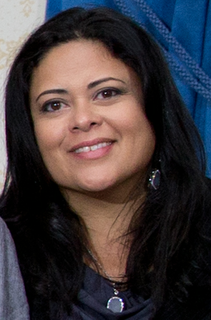A Quote by Maya Soetoro-Ng
As children, we develop some scorn for our parents and their imperfections.
Related Quotes
African American children are significantly more likely to be obese than are white children. Nearly half of African American children will develop diabetes at some point in their lives. People, that's half of our children. ...We can build our kids the best schools on earth, but if they don't have the basic nutrition they need to concentrate, they're still going to have a challenge learning.
As parents, we can do a great deal to further this goal by helping our children develop alternative ways of knowing the world verbally/analytically and visually/spatially. During the crucial early years, parents can help to shape a child's life in such a way that words do not completely mask other kinds of reality. My most urgent suggestions to parents are concerned with the use of words, or rather, not using words.
In early childhood, children develop a set of symbols that 'stand for' things they see in the world around them... Children are happy with symbolic drawing until about the age of eight or nine... when children develop a passion for realism. Our schools do not provide drawing instruction. Children try on their own to discover the secrets of realistic drawing, but nearly always fail and, sadly, give up on trying.
For a wonderful physical tie binds the parents to the children; and - by some sad, strange irony - it does not bind us children to our parents. For if it did, if we could answer their love not with gratitude but with equal love, life would lose much of its pathos and much of its squalor, and we might be wonderfully happy.
Our contemporary society is experimenting with the diminishment of caregivers for children. Some children are raised through crucial stages of life by only one person. This one person, who strives to give the best, may be overwhelmed, busy, trying to raise many children. And even in homes with two parents, many children are essentially alone.
There are great parents of small children - they keep their little hair in bows - but those parents are not always good parents of young adults. As soon as their children get up to some size, it's "Shut up, sit down, you talk too much, keep your distance, I'll send you to Europe!" My mom was a terrible parent of small children but a great parent of young adults. She'd talk to me as if I had some sense.



































